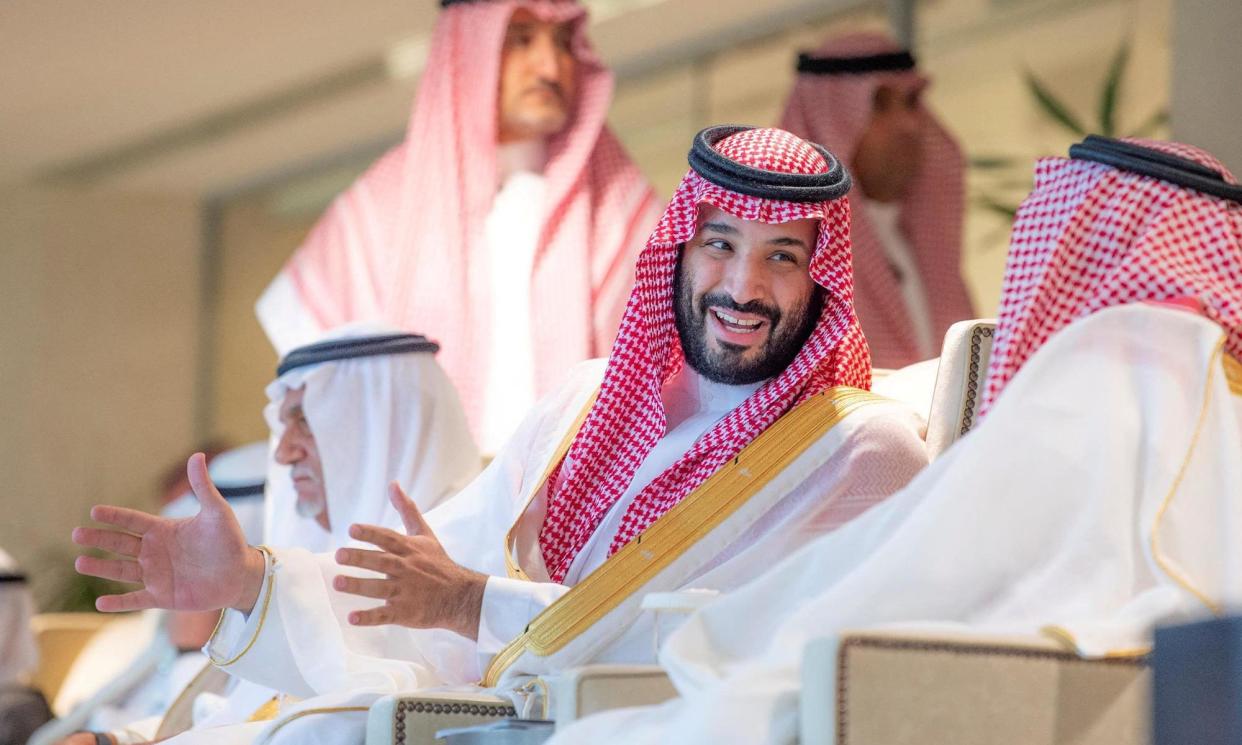Fresh scrutiny of free speech in Saudi Arabia after brothers’ convictions over tweets

Fresh questions have been raised about the suppression of free speech in Saudi Arabia after the brother of a man facing the death penalty for tweeting to 10 followers was handed a 20-year sentence for largely innocuous tweets.
The Saudi crown prince, Mohammed bin Salman, had said Mohammed al-Ghamdi was a victim of “bad laws” after being sentenced to death, yet the crown prince permitted the same laws to be used to sentence Ghamdi’s younger brother, Asaad al-Ghamdi.
Mohammed al-Ghamdi’s British-based lawyers have revealed that a UN special rapporteur on arbitrary detention judged in a recent report that their client was a victim of arbitrary detention and denial of an appropriate lawyer.
Mohammed al-Ghamdi was sentenced to death in July 2023 and has been given no notification of whether he is allowed to appeal, or when the sentence will be carried out. Prince Mohammed said in a Fox News interview in September that his death sentence was shameful for the judicial system.
A third, UK-based brother of the two Saudi-based Ghamdis is a human rights campaigner, and the arrest of his siblings is seen as a means by which Riyadh can threaten the political activities of dissidents based abroad.
Asaad al-Ghamdi was arrested by Saudi authorities in November 2022 in a night raid on his home in al-Hamdaniya, a neighbourhood of Jeddah, while his wife and children looked on. Security forces confiscated electronic devices and ransacked every room of the house.
He was not told of the reasons for his arrest or of the charges against him for at least 10 months and was denied a lawyer for 10 months. Nearly a third of that time was spent in solitary confinement. He suffers from epilepsy and had numerous bad falls in jail.
After eight hearings, he was convicted on 29 May this year, 10 months after his brother had been handed his death sentence.
Asked last September on Fox News about reports of Mohammed al-Ghamdi’s death sentence, Prince Mohammed said: “Shamely it is true. It is something we don’t like.”
Asked if he could change the laws, he replied: “We are doing our best to do that. We have changed tens of laws. I am trying to prioritise the change day by day, but we are not happy about that. The jail system has to follow the laws and I cannot tell the judge to do that and ignore the law because that is against the rule of law. But do we have bad laws? Yes. Are we changing that? Yes.”
He added that it was possible in the next phase of Mohammed al-Ghamdi’s trial that “the judge is more experienced and he might look at it totally differently”.
Yet eight months later Asaad al-Ghamdi was sentenced to 20 years in jail for the same offence, using the same articles of Saudi Arabia’s counter-terrorism laws.
In a report issued this week, the UN working group on arbitrary detention told the Saudi authorities that widespread or systematic imprisonment may constitute crimes against humanity. The group said Mohammed al-Ghamdi had been detained for exercising his lawful right to free expression, and his arrest was “completely inconsistent with human rights law”.
The group said he should be released immediately and paid compensation. It also recommended that the Saudi government review its anti-terror laws and the independence of its judiciary.
Riyadh told the working group that Mohammed al-Ghamdi was guilty of sedition, spreading chaos and disrupting public security, and his case was heard at a specialised criminal court in a fair and open trial. Saudi Arabia said it had a right under its anti-terror laws to hold a suspect in solitary confinement.
Dr Saeed al-Ghamdi, the brother of Mohammad and Asaad and a prominent Islamic scholar and exiled government critic, said: “The arbitrary detention working group decision regarding Mohammed al-Ghamdi is very good and I value it highly, but the Saudi government has a history of defying international law.
“I believe that the arrest of my brothers and the unjust sentences against them are due to my activism. Saudi authorities asked me several times to return to Saudi Arabia but I refused to do so. It is very probable that this sentence against my brothers is in retaliation for my activity. Otherwise, these charges wouldn’t have carried such a severe penalty.”
Haydee Dijkstal, the international counsel for the arrested brothers, said: “The blatant and clear reality is sentencing a retired teacher to death for exercising his fundamental right to free expression to a handful of followers on Twitter is objectively outrageous.”
The Sanad Human Rights Organization said Saudi Arabia had no intention of reforming its human rights record.
Documents show that Asaad al-Ghamdi was charged with “challenging the religion and justice of the king and the crown prince”, seeking to disrupt the public order and “publishing false and malicious news and rumours”. The documents state that he was arrested “for publishing posts that harmed the security of the homeland on social media websites (Twitter)”.
The tweets used as evidence against him criticised projects related to Vision 2030, Prince Mohammed’s programme for diversifying the country’s economy, including a lack of investment in Jeddah. One tweet mourned Dr Abdullah al-Hamid, a co-founder of the Saudi Civil and Political Rights Association and a leading Saudi human rights figure who died in prison after his conviction on charges relating to peaceful human rights activism, and offered condolences to his family.
The Saudi embassy has been contacted for comment.


